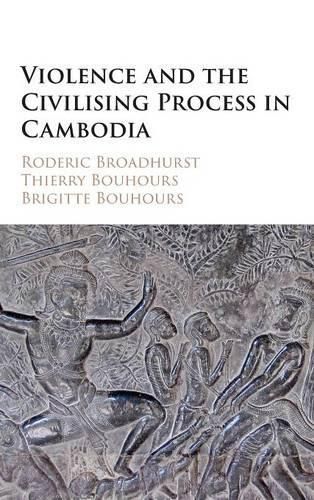Readings Newsletter
Become a Readings Member to make your shopping experience even easier.
Sign in or sign up for free!
You’re not far away from qualifying for FREE standard shipping within Australia
You’ve qualified for FREE standard shipping within Australia
The cart is loading…






In 1939, the German sociologist Norbert Elias published his groundbreaking work The Civilizing Process, which has come to be regarded as one of the most influential works of sociology today. In this insightful new study tracing the history of violence in Cambodia, the authors evaluate the extent to which Elias’s theories can be applied in a non-Western context. Drawing from historical and contemporary archival sources, constabulary statistics, victim surveys and newspaper reports, Broadhurst, Bouhours and Bouhours chart trends and forms of violence throughout Cambodia from the mid-nineteenth century through to the present day. Analysing periods of colonisation, anti-colonial wars, interdependence, civil war, the revolutionary terror of the 1970s and post-conflict development, the authors assess whether violence has decreased and whether such a decline can be attributed to Elias’s civilising process, identifying a series of universal factors that have historically reduced violence.
$9.00 standard shipping within Australia
FREE standard shipping within Australia for orders over $100.00
Express & International shipping calculated at checkout
In 1939, the German sociologist Norbert Elias published his groundbreaking work The Civilizing Process, which has come to be regarded as one of the most influential works of sociology today. In this insightful new study tracing the history of violence in Cambodia, the authors evaluate the extent to which Elias’s theories can be applied in a non-Western context. Drawing from historical and contemporary archival sources, constabulary statistics, victim surveys and newspaper reports, Broadhurst, Bouhours and Bouhours chart trends and forms of violence throughout Cambodia from the mid-nineteenth century through to the present day. Analysing periods of colonisation, anti-colonial wars, interdependence, civil war, the revolutionary terror of the 1970s and post-conflict development, the authors assess whether violence has decreased and whether such a decline can be attributed to Elias’s civilising process, identifying a series of universal factors that have historically reduced violence.